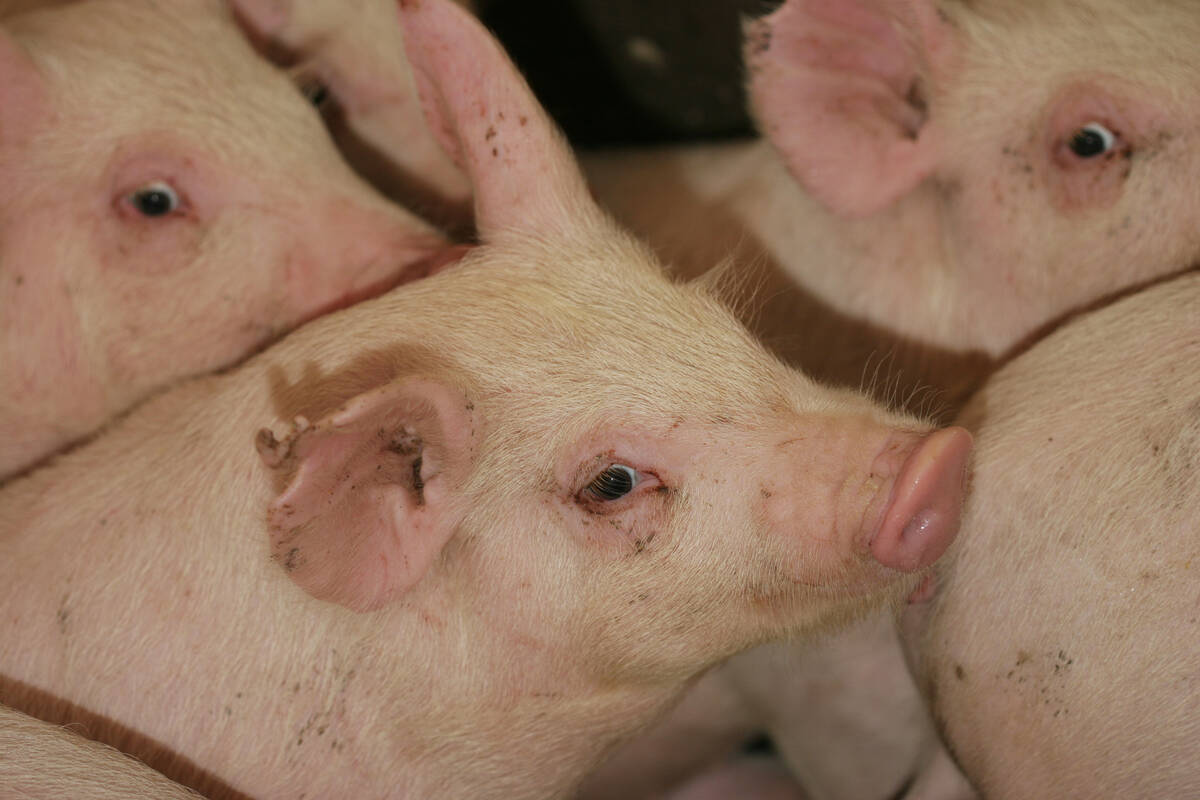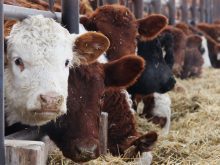Agriculture policy mistakes are being made in the United States with international consequences says a former lobbyist for the National Cattlemen’s Beef Association.
Some of the missteps are found in the U.S. farm bill with the continued uncertainty over country-of-origin labelling (COOL) and the push for more renewable fuel using corn as the main ingredient.
Jay Truitt, now a Washington consultant, said the labelling law could face legal challenges.
“I think it is really critical that everybody makes sure that we’re upholding the intent of our international trade laws,” he said at a recent international livestock congress held in Calgary.
Read Also

The Western Producer Livestock Report – September 25, 2025
The U.S. national live price average for barrows and gilts was $81.21 Sept. 17. It was $78.37 Sept. 9. U.S. hogs averaged $106.71 on a carcass basis Sept. 17, up from $106.10 Sept. 9.
He does not believe origin is the most important consideration for people buying meat. Studies show COOL is far down the list for consumers, who say they prefer freshness, reasonable prices and quality.
The rules are still being written for the labelling law so uncertainty remains.
A looming question is whether foreign-born animals have to be segregated at the processing plants. Truitt expects segregation will happen, which could be an even greater challenge for pork plants because they do not have enough cooler space to separate carcasses.
Segregation is already happening, leading to price discounts of foreign livestock, which is against international trade law.
“The repercussions for up here are pretty significant because some people are just going to says ‘no, it’s not that I don’t want Canadian pigs, it’s that I can’t get them into a plant that can actually sort them,’ ” he said.
There is talk of handling animals in group lots and they would all be labelled product of multiple countries, even if they are mostly American.
U.S. president George Bush, who cannot seek another term in office, is likely to leave implementation of the plan for the next president.
Republican candidate John McCain does not see it as a major issue, but Barrack Obama may want an even stricter law.
Another large part of the farm bill is the linkage of agriculture with environmental concerns, said Bill Holbrook, a Missouri based consultant.
However, the American public is more worried about gasoline prices than environmental issues.
“The environment is definitely a second tier issue in the consumer’s mind when you have to pay over $4 a gallon at the gas pump,” he told the livestock meeting.
The push for more biofuel production will continue. Jurisdiction for renewable, non-polluting energy lies with the Environmental Protection Agency under the 1990 U.S. Clean Air Act. The agency was told by the supreme court recently that part of its mandate is to regulate greenhouse gas emissions, so it will continue to demand more renewable fuel.
Many rules on how renewable fuel standards will be met have yet to be made. Corn will continue to be used to make ethanol even though demand is growing for food and exports.
That leads to more competition for land. Corn and soybean acres are probably maximized for the next 10 years, creating pressure to remove conservation reserve acres to grow other crops.
“We really are in a fight for acres and crop prices are going to be representative of that fight over time,” Holbrook said.
Cellulosics produced from grass or wood are not entirely the answer because the plant material has to be grown somewhere and that adds to the competition for land. Cellulosics also have a long way to go because harvesting, storage and transportation of the raw material are major hurdles.















